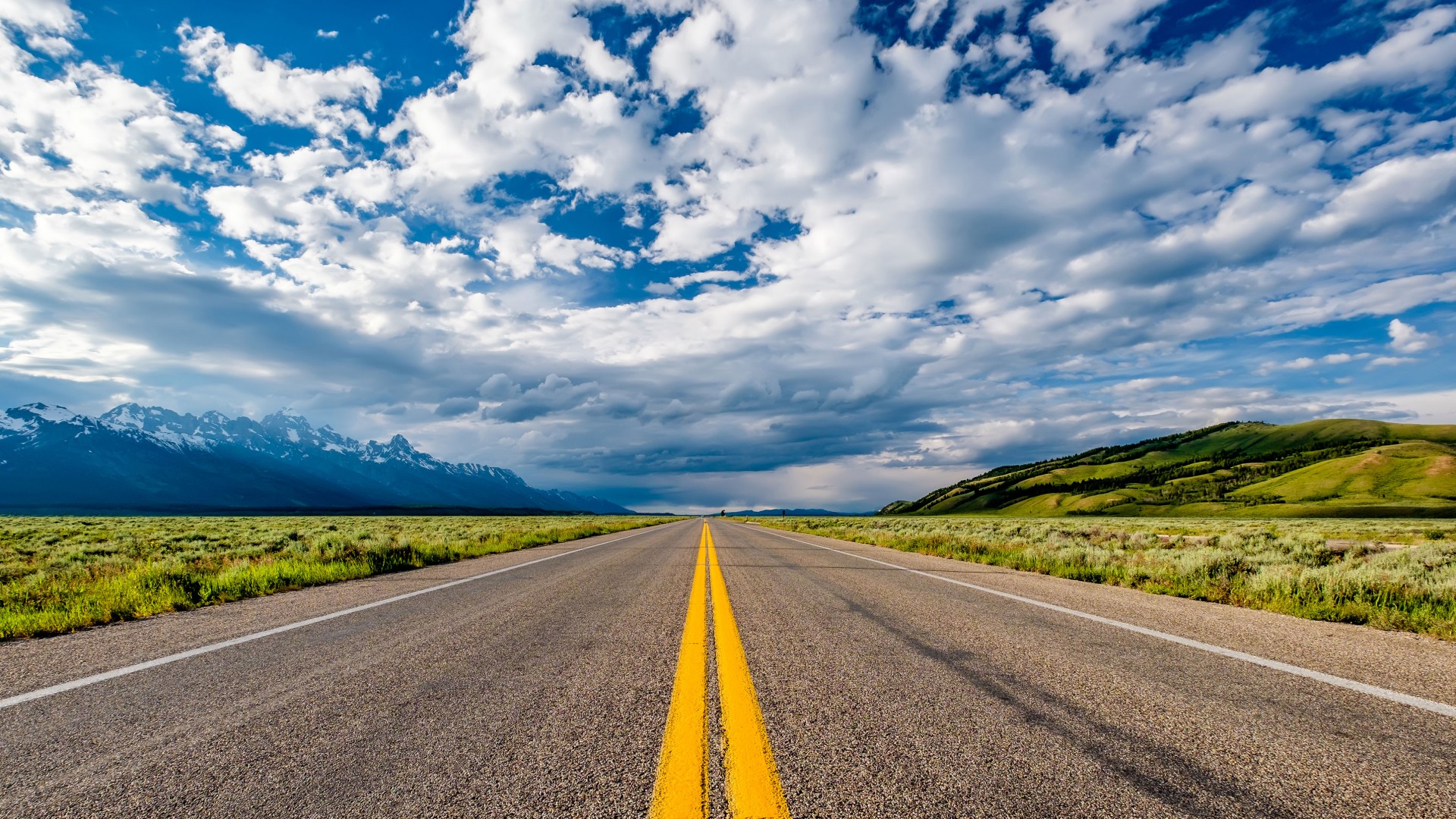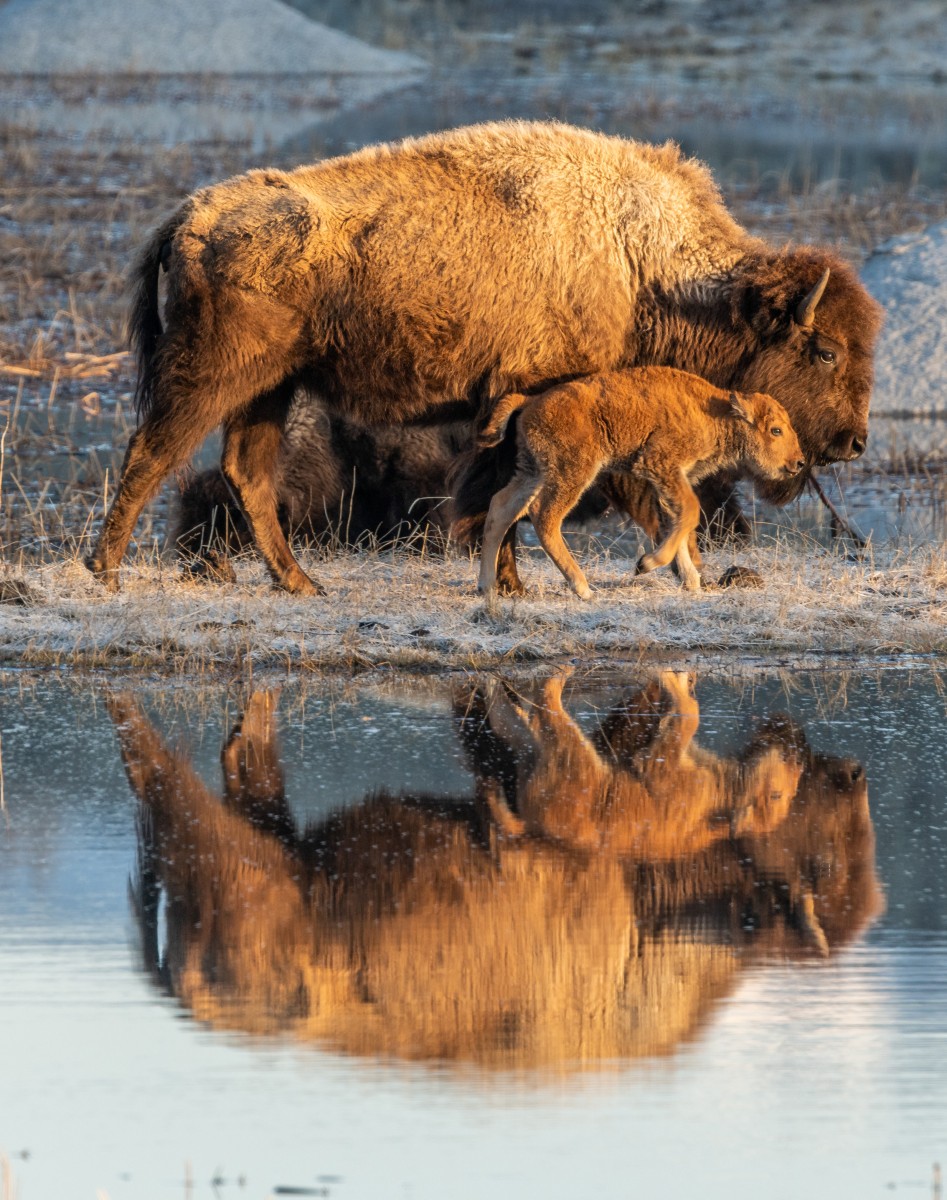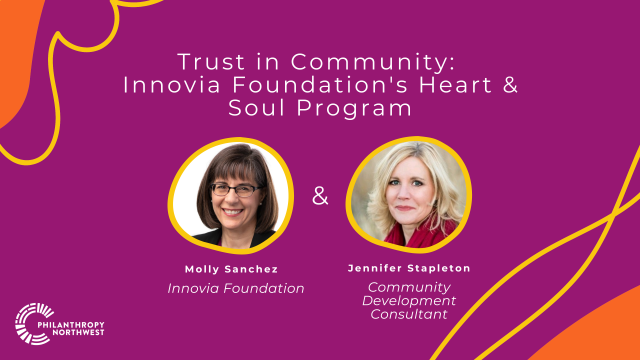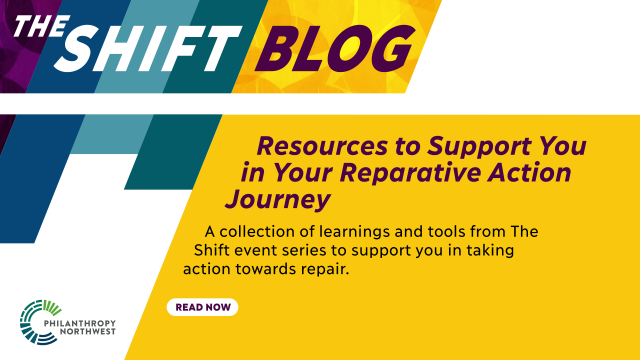
Sometimes we get so caught up in our day-to-day work that we don’t always make time to get out into the field to learn and see for ourselves. In my role as senior manager of membership, I have the luxury of getting to know people. Since I started working at Philanthropy Northwest over a year and a half ago, I’ve had the incredible opportunity to meet with people and travel to cities and towns across our region.
Earlier this year, our CEO, Kiran Ahuja and I hit the road and ventured to a part of our region that is personally new to us. The sole purpose of our trip was to learn and connect with grantmakers on the ground in Wyoming.
We spent our first day on the Wind River Indian Reservation, with some amazing members of the Arapaho and Shoshone tribes who served as local experts on the history of their people and land. This beautiful setting doesn’t come without struggle and pain. We discussed past and current effects of colonialism and the impact of white settlers and policies on Native lands. Little of the true history of Indigenous people is taught in public schools or discussed in the media. Many of us understand even less about the historical trauma and current-day realities of Native people. Being at Wind River in person reminded me of the Missing and Murdered Indigenous Women and Girls (MMIWG) Report released by the Urban Indian Health Institute. Recognizing the importance of this issue, Philanthropy Northwest recently committed to increasing philanthropy’s awareness of these assaults against Indigenous women, by establishing our new MMIWG policy platform. We aim to elevate issues of equity in support of foundations working on the health and vitality of all our communities.
While I felt sadness about this history, I also felt hope as we talked about the incredible work happening on the Wind River Reservation, including restoring wild buffalo onto the land. We also had the privilege of meeting with co-founders of the Wind River Foundation, a relatively new operating foundation. Their foundation’s sole purpose is to empower the Indigenous communities of Wyoming’s Wind River Reservation in their work toward cultural revitalization, social progress and economic prosperity.
We have tremendous influence as a network. I encourage all of our members to think about how we can learn more about Native American sovereignty and how grantmaking processes can be more inclusive of and available for Indigenous people. Native Americans in Philanthropy provides an Indigenous-focused approach in our sector and is a great resource. In addition, it is crucial that we hear more from our Wyoming members and other rural parts of the region so that we can amplify powerful, often unheard, stories like these about communities deserving greater attention.

We also had the opportunity to learn more about two other powerhouse community foundations near Wind River Reservation – the Community Foundation of Jackson Hole and the Community Foundation of Teton Valley. We have a growing and powerful network of community foundations and always want to know more about trends and themes across the region. These Wyoming-based organizations are working with communities to support thriving, local nonprofits and to bring together key stakeholders to address issues like housing and health. Through the Community Foundation of Jackson Hole’s largest fundraising event of the year (Old Bills Fun Run), which encourages giving amongst 25% of the residents to go directly back into the nonprofits, these community foundations are working directly with service providers to make sure needs are being met.
Our network can learn from what is happening in Wyoming – it’s important for us to connect members to other similar funders across our region. Hearing first-hand from and meeting with people who are doing the work makes our job so rewarding. Most importantly, these experiences provide us with the context to build programming and connections amongst our membership.
Being able to be that bridge goes much further than we often realize. People crave connectivity today and our members want to learn and share best practices with their peers. We’ll continue to help foster that culture of sharing and by doing so, ultimately strengthen the sector and the communities we all serve.


